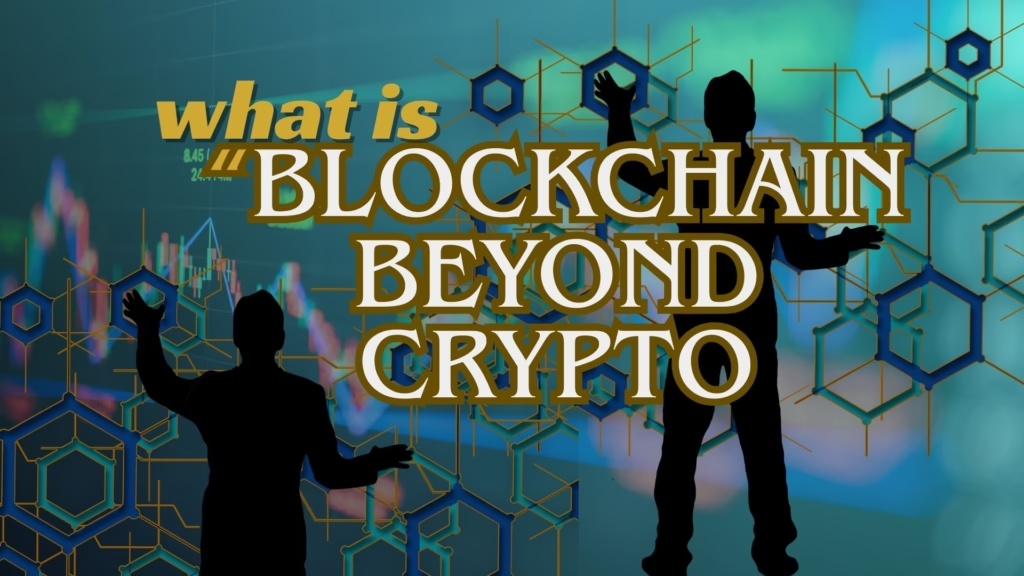
Blockchain Beyond Crypto
When individuals consider blockchain, the initial thought typically revolves around cryptocurrency. Bitcoin, Ethereum, and various other digital currencies have taken the forefront in news coverage for several years, leading many to assume that blockchain is solely for currency trading. However, the reality is that blockchain technology represents a far larger advancement. It serves as a safe, decentralized digital ledger capable of recording transactions and safeguarding data in a clear and unalterable manner. This distinctive characteristic renders it valuable in fields that extend well beyond cryptocurrency.
What is Blockchain?
Fundamentally, blockchain consists of a sequence of digital blocks that hold data. Each block is linked to the one prior, forming a system that is difficult to change. Since there is no central governing body, the information is disseminated across numerous computers, making hacking or manipulation nearly impossible. This trustless framework is what imparts strength to blockchain in sectors such as healthcare, supply chain management, voting procedures, and others.
Key Applications Beyond Cryptocurrency
1. Supply Chain Transparency
Blockchain enables companies to monitor every part of a product’s journey — from its initial materials to the consumer. This level of transparency helps avert fraud, guarantees authenticity, and allows organizations to uphold quality benchmarks.
2. Healthcare Data Management
Envision medical records that are secure, confidential, and readily available only to approved medical professionals or patients. Blockchain facilitates this scenario by safeguarding sensitive information against breaches while enhancing the efficiency of healthcare frameworks.
3. Smart Contracts
Smart contracts operate as self-executing arrangements housed on the blockchain. Once set terms are fulfilled, they automatically execute the agreement without the need for intermediaries such as lawyers or agents. This process conserves both time and financial resources.
4. Voting Systems
A significant obstacle in elections is establishing trust. Blockchain can facilitate secure digital voting that eliminates tampering, reducing fraudulent activities and ensuring clear democratic operations.
5. Digital Identity
Identity theft poses a widespread challenge. Blockchain assists individuals in constructing secure digital identities that are irreplaceable, granting users greater control over their personal data.
6. Real Estate
Property documents and land ownership information can be stored digitally using blockchain, minimizing paperwork, conflicts, and fraud in real estate dealings.
Why Blockchain Matters
The greatest advantage of blockchain resides in its capacity for security, openness, and decentralization. It eliminates the necessity for intermediaries, lowers expenses, and fosters trust in environments where it is frequently lacking. Ranging from banking to physical goods distribution and from government institutions to healthcare services, blockchain is demonstrating its significance as a revolutionary technology.
Conclusion
Blockchain transcends being merely the backbone of cryptocurrency — it represents a transformative innovation with limitless possibilities. As additional sectors begin to embrace it, blockchain will alter how we exchange information, manage resources, and establish trust within the digital realm. The future of blockchain encompasses much more than cryptocurrency; it focuses on forging a smarter, safer, and more open society.
